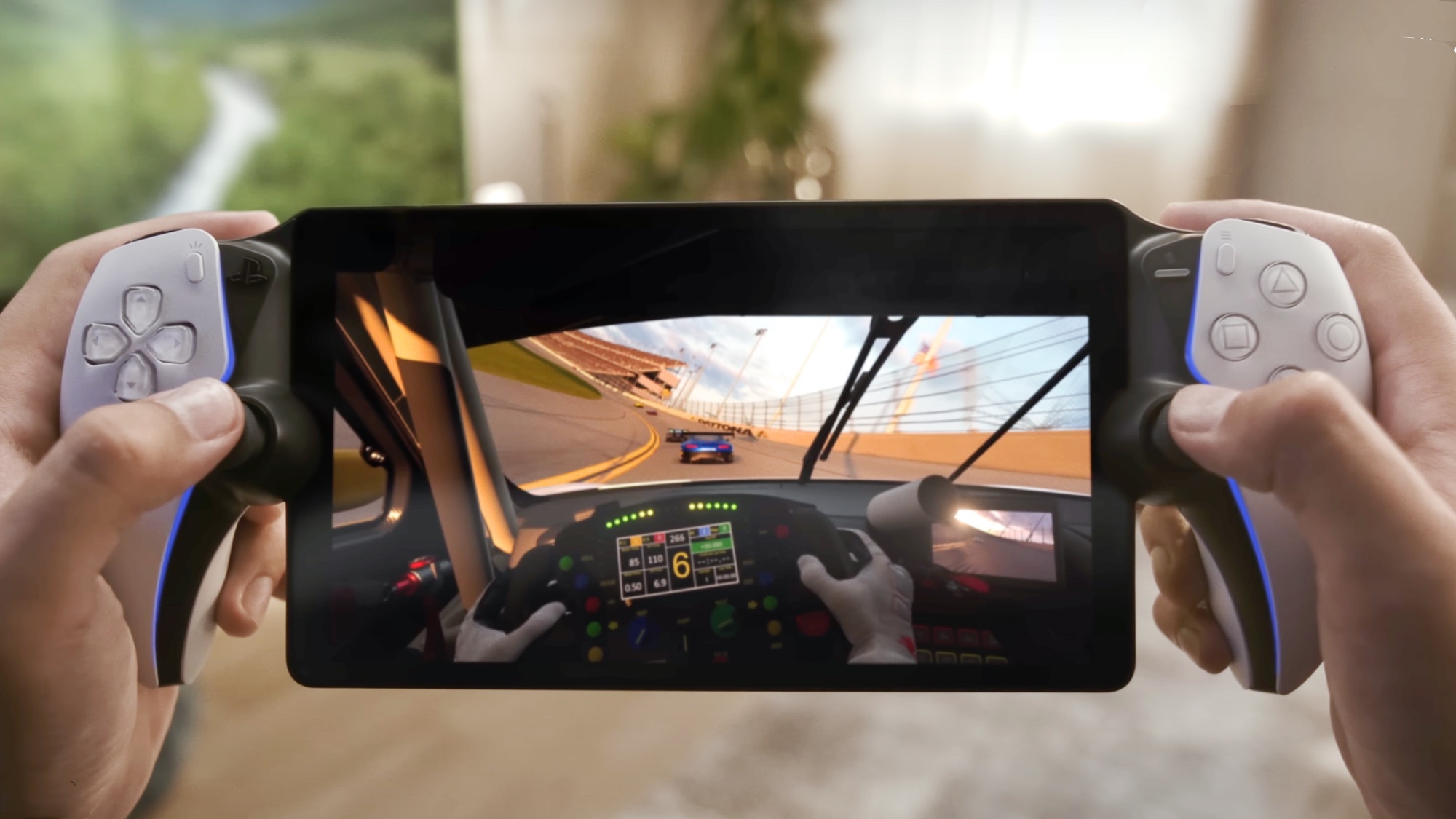Drawing on the reMarkable Tablet Feels Incredibly Natural
"Oh, wow! … How does this work?!"
That was my reaction to writing on the reMarkable tablet, a 10.3-inch slate that uses a unique CANVAS display technology and its felt-tipped Marker stylus. Yes, you read that right: This tablet's stylus uses felt for its tips, and they're great.
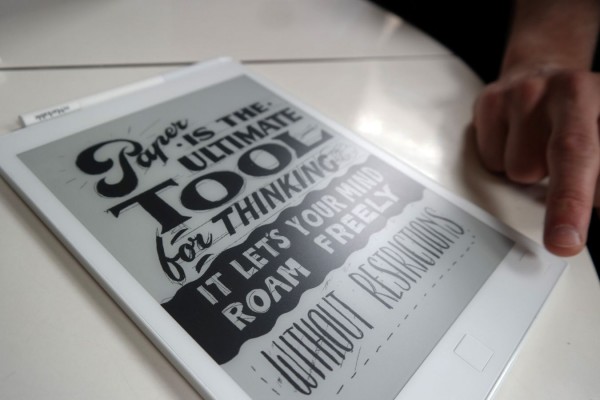
This happened last week at a private demonstration of the tablet at New York City's Ace Hotel. I tapped on the screen to switch our virtual instrument from a pen to a pencil, and then noticed that writing on the reMarkable actually felt different (pun intended). For the record, I wasn't even using a finished model, but the seventh version of the prototype, the first to be shown to the press.
MORE: iPad Stylus Review Roundup: Best Pen for Your Tablet
We first reported on the reMarkable back in November, when we were cautiously optimistic, as one would be when learning of a paper-like tablet that runs on its own operating system. It's rare that a consumer-level tablet can allow for writing with minimal latency.
But as I doodled on the reMarkable, I realized that solving the latency problem was only the start of its success.
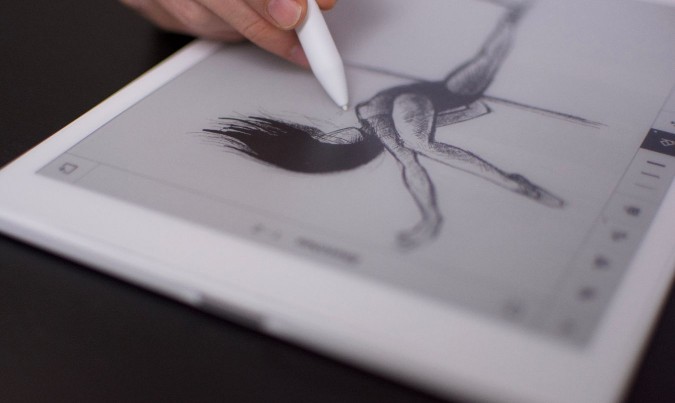
What the reMarkable Can Do
Stay in the know with Laptop Mag
Get our in-depth reviews, helpful tips, great deals, and the biggest news stories delivered to your inbox.
The reMarkable allows users to draw, write and scribble on a series of page templates including blank, lined and grid-rulings, as well as storyboards and a 3D-looking pattern that reminds me of the plans to destroy the Death Star. If you want to write on a different background, you can create your new page templates of your own.
These digital pages get organized in virtual notebooks, which can include existing PDFs and documents that you import onto the reMarkable to read or mark up. The reMarkable runs on its own operating system, for which free apps will be released over time.
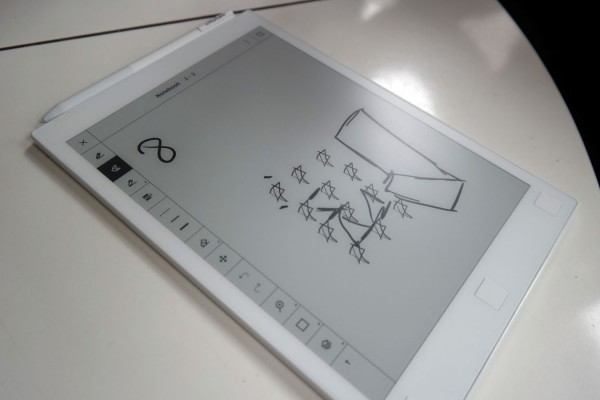
One of the neater tricks that reMarkable CEO Magnus Wanberg showed us was how regional select-and-clone tools allow simple drawings to become patterns. Using the Marker, he simply drew five stars, selected them and tapped a + icon to clone them, which caused me to "ooh" and "ahh," imagining how this could be used to create.
Wanberg noted that while reMarkable appeals to a kind of user that the company calls "paper people," it also gives them a feature that digital creators have all grown to rely on: undo. It even offers Photoshop-level skills, such as the ability to write on distinct layers so you can sketch on top of existing art from an imported PDF, and then hide things.
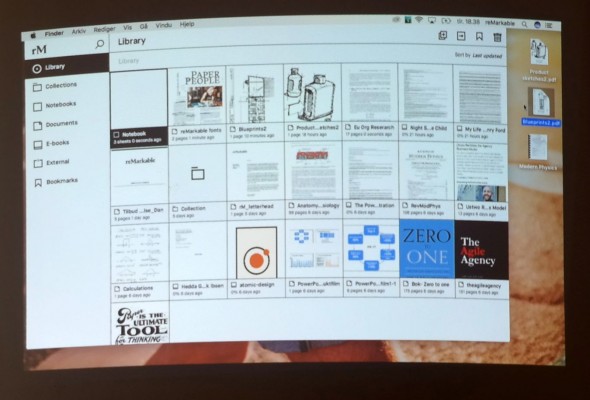
The drawings and documents created on the reMarkable will be easily exportable via the company's apps (which sync to Macs, PCs, iOS and Android), as the files it creates are vector art that can be imported to programs such as Adobe Illustrator.
About the Hardware
The reMarkable we saw, a seventh-generation prototype, was a 12.3-ounce model that felt light enough to hold easily. At 6.7 millimeters (0.26 inches) thick, it was thin enough to fit into a small folio. Its white bezel and off-white display was meant to evoke a stack of blank paper, as you're just as free to create on the slate as you would with paper.
If that design sounds especially plain to you, that's intentional. reMarkable Chief Design Officer Mats Solberg told us that the tablet is meant to not attract eyes, but simply exist, as (again) a stack of paper would. Only the device's aluminum back panel, which adds sturdiness, actually resembles any technology we use on a regular basis.
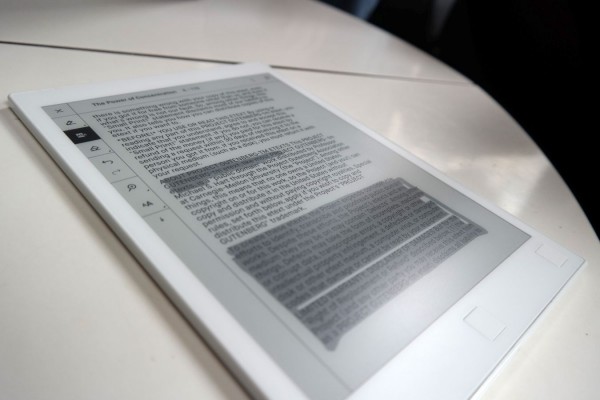
Why did they use felt for the stylus? Wanberg told us that was in order to get the correct friction-based feedback that you can get from writing with a pencil, the tip of the stylus needs to slowly wear away. The Marker ships with 10 tips, which Wanberg said should last for "months and months" of writing, depending on the force which which you write.
The reMarkable's 8GB of local storage will hold around 100,000 pages, and the tablet comes with mirrored cloud backups. The team isn't ready to make any battery-life claims yet, but is shooting for the reMarkable to last around a full work week on a single charge.
The Outlook
The tablet market is sharply divided right now, with Amazon's inexpensive Fire slates consuming the vast majority of sales, while Apple's premium-priced iPads own the rest of the field. The reMarkable aims to carve out a completely new corner in the industry by appealing to whom the company calls "paper people."
The reMarkable is available for pre-order now (with shipping in October), and the tablet, its Marker and felt Folio case cost $479 for early adopters. That's a 33 percent discount from the $716 price tag these three items will collectively go for later. On its own, the reMarkable will cost $529. The company will release Marker tip-replacement packs, but they don't yet have pricing.
The reMarkable team wants to make the tablet more powerful over time, adding in support for services such as Dropbox. The company is also working on a live-sync tool to let the reMarkable tablet mirror an active page on a networked device, which would be perfect for meetings and presentations.
Tablet Guide
- Kids Tablets to Buy (or Avoid)
- 10 Tablets with the Longest Battery Life
- Tablet Buying Guide: 8 Essential Tips
- The Best Tablets for Less Than $200
- Chromebook vs. Tablet: Which Should You Buy?
- Why 4G Tablets Are a Total Rip-Off
- How to Sell, Trade In or Donate Your Old Tablet
- iPad Buying Guide: Which One is Right for You?
- How to Use Your iPad as Your Only PC
Henry was a contributing writer at Laptop Mag. He penned hundreds of articles, including helpful how-tos for Windows, Mac, and Gmail. Henry has also written about some of the best Chromebooks, and he has reviewed many Apple devices, including various MacBook Air laptops. He is now a managing editor at our sister site Tom's Guide, covering streaming media, laptops, and all things Apple.
